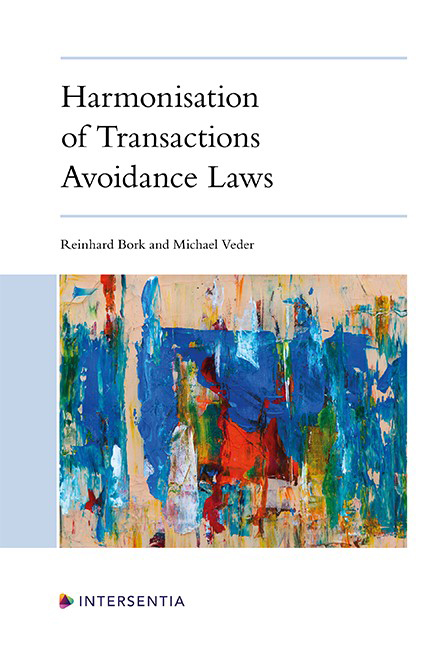Bulgaria
Published online by Cambridge University Press: 26 May 2022
Summary
PART 1. DETAILS OF YOUR NATIONAL TRANSACTIONS AVOIDANCE LAW
I. SYSTEM
Question 1. Is your transactions avoidance law (for terminology cf. Introduction at C.) part of insolvency law or is it in parts or as a whole incorporated in other fields of law (e.g. general civil law, commercial law, company law)?
Bulgarian transactions avoidance law is incorporated in the commercial law – i.e. the Commerce Act (“CA”), Chapter IV “Insolvency”. The general actio pauliana is regulated by the civil law – i.e. the Obligations and Contracts Act (“OCA”). Pursuant to Art. 649 CA, the general actio pauliana is also applicable in case of insolvency.
Question 2. Are the rules on transactions avoidance law in your jurisdiction the same for entrepreneurs/legal entities and consumers/natural persons? If not, please explain the differences and take it into account when completing this questionnaire.
Currently, the legal framework of insolvency does not regulate insolvency for natural persons that are not engaged in commercial activity (e.g. consumers). Insolvency legislation is focused solely on the commercial nature of the debtor. Therefore the rules on transactions avoidance law are applicable only for traders (merchants). Natural persons and legal entities (out of the insolvency proceedings) can benefit from the general actio pauliana.
Question 3. Are the rules on transactions avoidance law in your jurisdiction the same for liquidation and restructuring proceedings (if any)? If not, please explain the differences and take it into account when completing this questionnaire.
The rules on transactions avoidance law in Bulgaria are the same for liquidation and restructuring (rehabilitation) proceedings. Both liquidation and rehabilitation are regulated as separate stages of the insolvency proceedings, following the court decision for the opening of insolvency proceedings.
Those claims are not applicable in the merchant restructuring proceedings (stabilisation proceedings). However, the court may dismiss the application for initiation of stabilisation proceedings if it finds that, within the last three years before the application is lodged, the merchant carried out gratuitous transactions or transactions which clearly reduce his or her assets.
Question 4. Are the rules on transactions avoidance law in your jurisdiction the same for debtor-in-possession proceedings (if any)? If not, please explain the differences and take it into account when completing this questionnaire.
- Type
- Chapter
- Information
- Harmonisation of Transactions Avoidance Laws , pp. 569 - 604Publisher: IntersentiaPrint publication year: 2022

